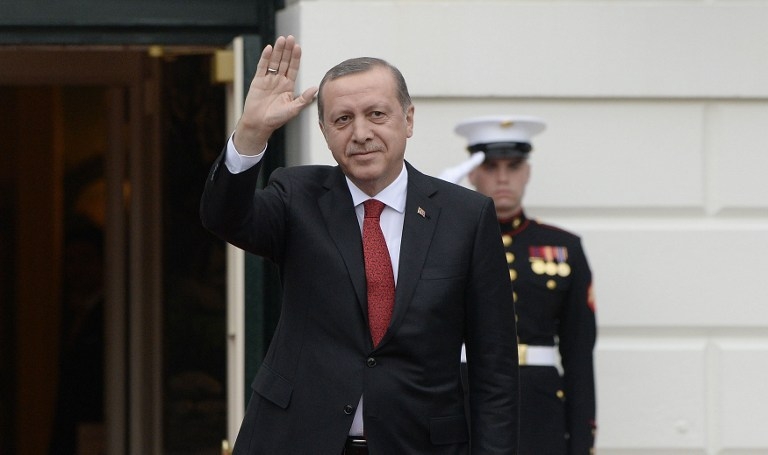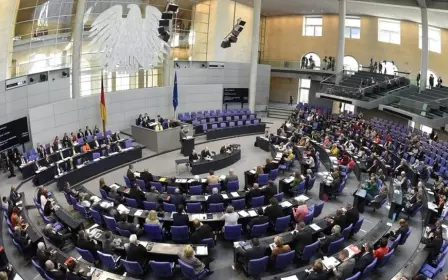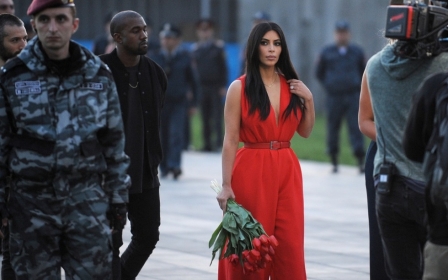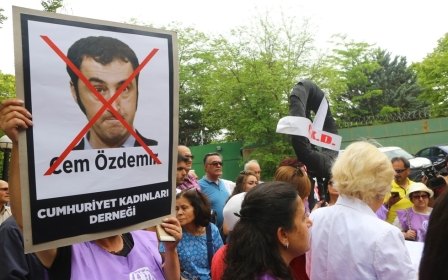Turkish nation 'shares pain' of Armenians, says Erdogan

Recep Tayyip Erdogan said Turkey must "share" the pain of Armenians as they commemorated on Tuesday the deaths of more than a million people in what they term a "genocide" by the Ottoman empire in the First World War.
The president said in his message to the Armenian Patriarch in Istanbul that "to share these pains is a requirement of the conscientious and moral posture of the Turkish nation".
"I remember with respect the Ottoman Armenians who lost their lives, and offer my sincere condolences to their children and descendants," he said.
I remember with respect the Ottoman Armenians who lost their lives, and offer my sincere condolences to their children and descendants
- Recep Tayyip Erdogan
Erdogan said Armenians “lost their lives during the fierce and harsh conditions of the First World War” drawing a comparison “with millions of Ottoman citizens we lost due to contagious diseases, migration, war and clashes during the same period”.
Turkey has never recognised the deaths as a genocide, instead describing them as the "1915 events" which led to mass deaths on both sides.
Armenia claims 1.5 million died under the Ottoman empire in 1915. Turkey says the deaths were a part of the First World War and many Turks also died.
In Armenia’s capital Yerevan, citizens gathered to commemorate the anniversary only a day after the recently elected prime minister, Serzh Sargsyan, quit in response to mass protests called by the opposition, who accused him of a power grab.
Acting leader Karen Karapetyan called for unity as crowds gathered at the country’s hilltop memorial.
"Today we show the world that despite difficulties and unresolved domestic issues we are together and united," said Karapetyan. "This is our duty to the genocide's innocent victims.”
Armenia pushed for greater recognition of the deaths as genocide in the run-up to the centennial anniversary in 2015 leading to resolutions being passed by the European Parliament, Germany and several other countries' parliaments.
In January the French president, Emmanuel Macron, added 24 April to the French calendar to commemorate the events 100 years ago.
Turkey has declined to recognise Armenia's claims and has angrily reacted to any such moves by its allies. In 2017, it accused the US president, Donald Trump, of "misinformation" when he stopped short of using the word genocide but marked "one of the worst mass atrocities of the 20th century".
The dispute has been a persistent barrier to establishing diplomatic ties between the two countries. In January Armenia withdrew from a deal to normalise relations, signed in 2009 but unratified by either country.
New MEE newsletter: Jerusalem Dispatch
Sign up to get the latest insights and analysis on Israel-Palestine, alongside Turkey Unpacked and other MEE newsletters
Middle East Eye delivers independent and unrivalled coverage and analysis of the Middle East, North Africa and beyond. To learn more about republishing this content and the associated fees, please fill out this form. More about MEE can be found here.




